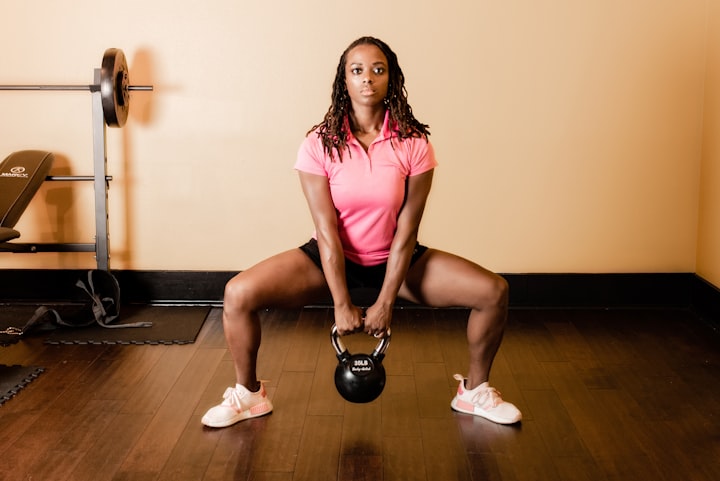10 Ways to Boost Your Physical Health and Well-Being
active wellness lab

10 Ways to Boost Your Physical Health and Well-Being
Physical health and well-being are essential for a fulfilling and balanced life. When you're physically healthy, you have more energy, you're less likely to get sick, and you're better able to manage stress. And when you feel good about yourself physically, it can boost your mood and mental well-being as well.
There are many things you can do to improve your physical health and well-being. Here are 10 tips:
1. Move your body regularly.
Physical activity is one of the best things you can do for your physical health. It helps you burn calories, improve your cardiovascular health, strengthen your muscles and bones, and reduce your risk of chronic diseases such as heart disease, stroke, and type 2 diabetes.
Aim for at least 30 minutes of moderate-intensity exercise most days of the week. This could be anything from walking and biking to swimming and dancing. If you're new to exercise, start slowly and gradually increase the amount of time you spend exercising each week.
2. Eat a healthy diet.

What you eat has a big impact on your physical health. A healthy diet provides your body with the nutrients it needs to function properly and stay healthy. It's important to eat a variety of foods from all food groups, including fruits, vegetables, whole grains, lean protein, and healthy fats.
Here are some tips for eating a healthy diet:
Fill half your plate with fruits and vegetables at every meal.
Choose whole grains over refined grains.
Choose lean protein sources such as chicken, fish, and beans.
Include healthy fats in your diet from sources such as nuts, seeds, and avocados.
Limit processed foods, sugary drinks, and unhealthy fats.
3. Get enough sleep.
Sleep is essential for physical and mental health. When you sleep, your body repairs itself and your brain consolidates memories. Most adults need around 7-8 hours of sleep per night.
If you're having trouble sleeping, try to establish a regular sleep schedule and stick to it as much as possible. Create a relaxing bedtime routine to help you wind down before bed. Avoid caffeine and alcohol before bed, as they can interfere with sleep.
4. Manage stress.
Chronic stress can have a negative impact on your physical health. It can lead to high blood pressure, heart disease, and other health problems. Find healthy ways to manage stress, such as exercise, yoga, or meditation.
Other stress-management techniques include:
Spending time in nature
Listening to calming music
Reading a book
Taking a warm bath
Spending time with loved ones
5. Maintain a healthy weight.
Being overweight or obese can increase your risk of chronic diseases such as heart disease, diabetes, and stroke. Aim to maintain a healthy weight by eating a healthy diet and exercising regularly.
If you need to lose weight, talk to your doctor about a healthy weight loss plan. There are many different weight loss plans available, so find one that works for you and that you can stick with for the long term.
6. Limit alcohol and avoid smoking.
Excessive alcohol consumption and smoking can damage your health. If you drink alcohol, do so in moderation. Quitting smoking is the best thing you can do for your health.
Alcohol can damage your liver, heart, and brain. Smoking can damage your lungs and increase your risk of cancer. If you're struggling to quit smoking, talk to your doctor about smoking cessation programs and resources.
7. Get regular checkups.

Regular checkups with your doctor can help identify and treat health problems early on. Get a checkup at least once a year, or more often if you have any health conditions.
During a checkup, your doctor will typically do a physical exam, ask you about your medical history and lifestyle, and order any necessary tests.
8. Protect your skin from the sun.
The sun's ultraviolet (UV) rays can damage your skin and increase your risk of skin cancer. Wear sunscreen with an SPF of 30 or higher whenever you're outdoors, and seek shade during the middle of the day.
Other tips for protecting your skin from the sun include:
Wearing protective clothing, such as a hat and sunglasses
Reapplying sunscreen every two hours, or more often if you're sweating or swimming
Avoiding tanning beds
9. Connect with others.
Social connections are important for both physical and mental health. When you have strong social ties, you're more likely to get support when you need it, and you're less likely to feel isolated.
Make an effort to stay connected with your friends and family. Spend time with them regularly, and talk to them about your life. You can also join clubs or groups to meet new people and make new friends.
10. Practice mindfulness.
Mindfulness is the practice of paying attention to the present moment without judgment. It can help you reduce stress, improve your focus, and increase your self-awareness.
There are many different ways to practice mindfulness. One simple way is to focus on your breath. Sit in a quiet place and close your eyes. Take a few deep breaths and focus on the sensation of your breath entering and leaving your body. If your mind wanders, gently bring it back to your breath.
You can also practice mindfulness while doing other activities, such as eating, walking, or showering. Pay attention to the sensations in your body and the sounds and sights around you. If your mind wanders, gently bring it back to the present moment.
Conclusion
Following these 10 tips can help you improve your physical health and well-being. It's important to remember that small changes can make a big difference over time. So start by making one or two changes that you can stick with. Once you've made those changes, you can start to add more.
Improving your physical health and well-being is a journey, not a destination. Don't get discouraged if you slip up from time to time. Just pick yourself up and keep going. The more consistent you are with your efforts, the better you'll feel.
Additional tips for improving your physical health and well-being:
Drink plenty of water. Water is essential for good health. It helps to regulate body temperature, transport nutrients, and remove waste products. Aim to drink eight glasses of water per day, or more if you're active or live in a hot climate.
Eat breakfast every day. Eating breakfast helps to start your day off right. It gives you energy and helps to improve your focus and concentration.
Cook more meals at home. Cooking more meals at home allows you to control the ingredients and portion sizes. It's also a great way to save money.
Reduce your stress levels. Chronic stress can have a negative impact on your physical and mental health. Find healthy ways to manage stress, such as exercise, yoga, or meditation.
Get involved in your community. Getting involved in your community is a great way to stay active and connected with others. It can also give you a sense of purpose and belonging.
Improving your physical health and well-being is an investment in yourself. By following the tips above, you can start to live a healthier and happier life.
find out more at the Active Wellness lab





Comments
There are no comments for this story
Be the first to respond and start the conversation.